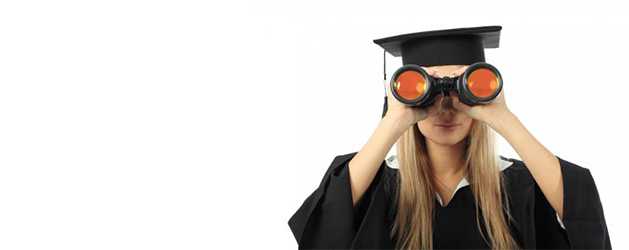
University of Saskatchewan
Overview
AC Rating
Courses
Campuses
Views
Location : Canada ,Saskatchewan
Overall Rating :
The University of Saskatchewan (U of S, or USask) is a Canadian public research university, founded on March 19, 1907, and located on the east side of the South Saskatchewan River in Saskatoon, Saskatchewan, Canada. An "Act to establish and incorporate a University for the Province of Saskatchewan" was passed by the provincial legislature in 1907. It established the provincial university on March 19, 1907 "for the purpose of providing facilities for higher education in all its branches and enabling all persons without regard to race, creed or religion to take the fullest advantage".[3]Coordinates: 52°7′47″N 106°37′58″W[4][5] The University of Saskatchewan is the largest education institution in the Canadian province of Saskatchewan. The University of Saskatchewan is one of Canada's top research universities (based on the number of Canada Research Chairs) and is a member of the U15 Group of Canadian Research Universities (the 15 most research-intensive universities in Canada).
The university began as an agricultural college in 1907 and established the first Canadian university-based department of extension in 1910. There were 120 hectares (300 acres) set aside for university buildings and 400 ha (1,000 acres) for the U of S farm, and agricultural fields. In total 10.32 km2 (3.98 sq mi) was annexed for the university.[6][7] The main university campus is situated upon 981 ha (2,425 acres), with another 200 ha (500 acres) allocated for Innovation Place Research Park.[6][8] The University of Saskatchewan agriculture college still has access to neighbouring urban research lands.[9] The University of Saskatchewan's Vaccine and Infectious Disease Organization (VIDO) facility, (2003) develops DNA-enhanced immunization vaccines for both humans and animals.[10][11] The university is also home to the Canadian Light Source synchrotron, which is considered one of the largest and most innovative investments in Canadian science. Since its origins as an agricultural college, research has played an important role at the university. Discoveries made at the U of S include sulphate-resistant cement and the cobalt-60 cancer therapy unit. The university offers over 200 academic programs.
Courses
Admission
Find a Program
We offer undergraduate and graduate programs in over 150 fields of study. Start your journey today.
UNDERGRADUATE PROGRAMS
BACHELOR LEVEL DEGREES, DIPLOMAS, CERTIFICATES
These include programs you can enter directly from high school, such as engineering, as well as professional programs that require some previous university experience, like nursing or law.
GRADUATE PROGRAMS
MASTER'S AND DOCTORAL DEGREES AND CERTIFICATES
These include programs that require you to have earned a degree in a relevant field.
Other programs
English language programming
The University of Saskatchewan Language Centre offers English as a second language (ESL) programs to help students prepare for university.
Continuing education and professional development
Explore our continuing education opportunities for personal and professional development as well as youth programming such as kids camps.
Upgrading and pathway programs
USask offers options if your grades are not high enough for admission, if you need a class as a prerequisite or if you just need a review.
Other types of applicants
Exchange student
Students from institutions who have a formal exchange agreement with USask study here for 1 or 2 semesters while paying tuition to their home institution.
Visiting student
If you are enrolled at another institution and you want to take USask classes to transfer to your degree program, you may apply as a visiting student.
Postdoctoral fellows
For PhDs or those with equivalent experience who are interested in engaging in research projects in order to further develop their skills and knowledge.
Joint student / graduate sandwich program
A joint student is a student who is completing a graduate degree from another university, and who wishes to attend USask for a period of between six months to two years to do research under the supervision of USask faculty, as partial fulfillment of a graduate degree from their home university.
Visiting research student
A Visiting Research Student (VRS) is an undergrad or graduate student enrolled at the University to undertake full-time research with a faculty supervisor.
Accommodation
Accommodations
What is an accommodation?
Accommodations are supports or services that allow a student with a disability, or other accommodation needs, a fair opportunity to engage in academic activities and fulfill essential course and program requirements. Accommodations are meant to level the playing field for students; they are never meant to provide an advantage to students. Accommodations are not the same as modifications; you must still meet the learning outcomes of your program.
Students with disabilities
We encourage you to register with Access and Equity Services as early as possible if you identify with one or more of the following broad categories (this is not a comprehensive list):
- Attention Deficit Hyperactivity Disorder (ADHD)
- Autism Spectrum Disorder
- Brain Injury or Concussion
- Chronic Health Issues (Bowel Diseases Epilepsy, Migraines)
- Deaf/Hard of Hearing
- Learning Disability
- Mental Health (Anxiety or depressive disorders, Schizophrenia, Eating Disorders)
- Mobility/Functional Issues
- Low Vision/Legally Blind
- Temporary conditions
Types of disabilities
In order to register with AES as a student with a disability you must have a Medical-based or Learning Disability:
- Medical-based Disabilities - any degree of physical disability, mental disorder(s), infirmity, malformation or disfigurement.
- Learning Disabilities: any intellectual disability or impairment, learning disability or a dysfunction in one or more of the processes involved in the comprehension or use of symbols or spoken language (this does not include struggling with English as a second language).
By law, AES defines disability according to Section 2(1)(d.1) of the Saskatchewan Human Rights Code
Students diagnosed with COVID-19
If you are absent from a final examination through no fault of your own, for medical, compassionate, or other valid reasons, you may apply for a deferred exam. An application must be made to an academic advisor in your college within three business days of the missed examination.
If you become ill during a final examination or cannot complete the final examination for other valid reasons you must notify the invigilator immediately of your inability to finish and then apply for a deferred examination by contacting an academic advisor in your college.
During the COVID-19 pandemic, students should not be asked to supply sick notes from a health professional, and instead may be asked to submit a Declaration of Absence form.
Students with other accommodation needs
If you require an accommodation based on your religion, family status (including pregnancy) or gender identity, please contact aes@usask.ca or phone 306-966-7273.
You have a right to an education, and USask will make reasonable accommodations to ensure you are not discriminated against on the basis of:
- religion
- creed
- marital status
- family status
- sex
- sexual orientation
- disability
- age (18 or more)
- colour
- ancestry
- nationality
- place of origin
- race or perceived race
- receipt of public assistance
- gender identity
By law, AES defines 'prohibited grounds' according to Section 2(1)(m.01) of the Saskatchewan Human Rights Code
Duty to Accommodate Policy
The University of Saskatchewan is committed to establishing and maintaining a learning environment that fosters equitable opportunities for academic success and personal development without discrimination or harassment.
This policy replaced "Students with Disabilities: Academic Accommodation and Access" policy originally approved March 1, 1997, amended September 1, 2011.
- Duty to Accommodate Policy
Scholarships
Currently there are no scholarships available.












